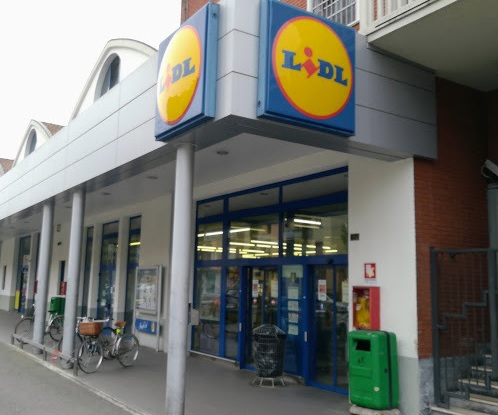The February 5, 2018 was The proposed renewal of the Lidl Italia Srl supplementary company agreement, which expired in 2013 and supplements the 2015 National Collective Bargaining Agreement for the Tertiary, Distribution and Services Sector signed with Confcommercio and implemented within the company, has been signed.
After a long and difficult negotiation the parties, the company, Fisascat Cisl and Uiltucs, (Filcams CGIL (has not signed and reserves the right to a political review in the coming days) concluded the negotiations by signing a draft agreement that will be applicable immediately and will expire in March 2021, thus providing workers with a set of rules that improves disposable income through an increase in weekly working hours, improves working conditions and facilitates the work-life balance.
As trade union organization signatoriesto We believe that the renewal of this supplementary company agreement, applicable to approximately 13,000 employees working at the company's headquarters, 10 regional warehouses, and approximately 600 branches, is an innovative experience in large-scale retail trade with respect to participation, contractual welfare, management of working hours, and the potential for increased income.
WHAT DOES THE NEW AGREEMENT PROVIDE?
– NEW SYSTEM OF INDUSTRIAL RELATIONS AND PREVENTIVE INFORMATION
Specifically, the agreement provides for a renewed and improved system of industrial relations. This includes, in addition to the standard national relations, a series of meetings aimed at providing preventive information, consultation, and possible agreements at the Regional Management level. These meetings complement the standard store meetings, where, among other things, work organization and holiday scheduling are verified and monitored.
Union rights for workers and RSAs (assemblies, permits, etc.) are extended to branches with 14 employees and are maintained even if the same branch were to reduce its number of workers to eight.
+ SAFETY AT WORK
The topic of safety at work is important and a permanent technical table for monitoring and studying the subject is foreseen, while the number and areas of intervention of the Workers' Representatives for Safety are defined, which will be 1 or 3 in the warehouses, depending on the number of workers, as defined by the law, and 3 for each regional management, for a A total of approximately 50 RLSs (worker safety representatives). A package of training hours was provided for these workers, in addition to what is required by law. Finally, the issue of medical examinations was clarified and defined (no cost to the worker, including time spent, which must be paid), also establishing a company commitment to have them performed close to the workplace.
WORKING HOURS: MULTI-WEEKLY SCHEDULE, OVERTIME
Regarding working hours, a multi-week schedule has been established, while minute-by-minute pay for overtime and additional work has been confirmed. The extension of the possibility of overtime to 400 hours per year for entry-level employees has also been confirmed.
Regarding Sunday work, coverage is primarily voluntary and planned to ensure fair staff rotation. Regarding remuneration, a percentage increase of 135% is provided for hours worked as "ordinary" hours, with compensatory time off provided. However, if Sunday work is performed as overtime or supplementary work, in addition to the 135% increase, an additional daily salary portion will be paid based on the hours worked.
EXPERIMENTAL PART-TIME
An experimental part-time program is being introduced, which involves a possible stable increase in weekly hours combined with flexible working hours. Interested workers can opt into this program voluntarily and can return to their original part-time schedule at any time. It should be noted that this program is an additional and different tool than the potential consolidation of a portion of the supplementary work schedule, as provided for in the National Collective Bargaining Agreement.
The trial will be conducted for six months at 30 branches and two warehouses, which will be determined shortly. Interested part-time workers who submit a written request will be able to see their weekly hours increased by five hours, effectively increasing them from 20 to 25 and from 25 to 30 hours per week. The increase in individual working hours requires the signing of a flexibility agreement that will allow for variability in the timing of work, with increases and decreases ranging from one to five hours per week. Monthly pay will be equal to the hours established in the individual part-time trial contract, including all direct, indirect, and deferred contracts. Finally, the trial will be monitored nationwide for six months and, if successful, we will finalize a new agreement for additional branches and warehouses.
…ON TEMPORARY WORK
The issue of missions has also been regulated, also with the aim of combating their improper use, by introducing a defined perimeter beyond which the worker cannot be sent on mission, and by increasing the mileage reimbursement for the benefit of the worker.
The agreement also provides for a "Welfare System" consisting of contractual provisions and agreed-upon benefits. The contractual provisions define protections for civil unions, the right to leave of absence until the child is one year old, hourly parental leave with the possibility of combining it with other paid or unpaid leave, leave of absence until recovery for serious illnesses and illnesses resulting from work-related injuries, and the system of holiday and leave donations, balanced by additional company recognitions.
WELFARE
Regarding agreed benefits, the "Welfare System" includes the extension of the healthcare fund (the company correctly implements the EST Fund) through insurance benefits for highly specialized services, including hospitalization, diagnostic tests and reimbursement of co-payments, oncology treatments, physiotherapy rehabilitation treatments, and dental services, as well as consultation and assistance, including medical opinions, online and by telephone.
Furthermore, two annual, non-parameterized payments of €50 net in shopping vouchers and an additional €100 net in birth vouchers are envisaged for each child born or adopted by workers. Finally, regarding video surveillance, the Parties have agreed to delegate the matter to a specific meeting, which we will hold shortly, to address the issue of installing video cameras throughout the entire store network, as already done with the 2015 agreement on warehouses.
IN CONCLUSION
This agreement, strongly supported by the union delegation, demonstrates that it is possible to negotiate virtuous flexibility for both parties through a system of working hours that significantly improves workers' income and provides flexibility for a trial period of six months. This system, if managed bilaterally, can only yield positive outcomes for both companies and employees. Furthermore, the welfare system agreed upon by the parties, both contractual and healthcare-related, through expanded health, maternity, and civil union protections, including healthcare and dental benefits, strongly responds to the needs expressed by workers in the consultation process for the renewal platform.
On the territoriesor they will come carries outtea assemblies in warehouses and branches, to inform workers throughout the country And illustrate the agreement hypothesis to proceed Then to its validation.



